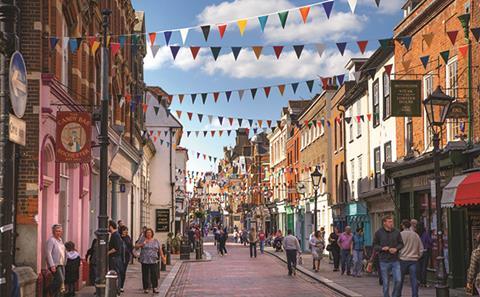New inflation figures of 3.9 % are creating yet another punitive business rate hit on UK businesses, potentially adding over £1bn to the troubling rates bill which Jerry Schruder highlighted in last week’s issue.

Because business rates for April 2018-April 2019 are currently linked to the rate of inflation six months earlier, the new RPI inflation figure of 3.9% will means businesses will see this 3.9% rise in their rates bill in April next year. This is on top of some of the most punitive business rates rises ever seen that many businesses suffered in April 2017.
The pain would not be so great if business rates were linked to CPI, now running at 3%, as opposed to RPI measures of inflation but the government’s decision to delay the switching of business rates indexation until 2020 will now have costly implications for businesses.
It’s a bizarre scenario, the Treasury has recognised that many businesses are suffering from the business rating revaluation in 2017 and has finally accepted that CPI rather than RPI is a fairer measure of inflation to link business rate rises to. But instead of introducing the new indexation immediately, it is waiting three years to 2020. One wonders how much pain do businesses have to suffer? With inflation on the rise at the moment, by the time we reach April 2020, we could see some very uncomfortably high rating levels.
According to the British Retail Consortium, BRC retailers, which account for a quarter of business rates, will face a rate hike of over £270m in the coming year with RPI at these levels. This is not just because of the two-year delay in the reduction of their rates bill when the revaluation was delayed from 2015 to 2017, but also because of the introduction of the five-year transition period before they are allowed to pay their bills at the new lower revalued level.

The Treasury has claimed the change to CPI indexing would save companies £1bn in the first three years, including a £250m saving for the retail sector. If this is the case, the government should act now. Many businesses have been hammered in the recent business rates revaluation, particularly the high street retailers and with delays in receiving promised reliefs and the failures of the new business rates appeal system, many are finding themselves squeezed or even worse.
The 3.9% RPI figure will produce a multiplier in 2017/18 in England of £0.497 - effectively a 50% tax rate. The effect of downward phasing of rates bills means many businesses in some of the hardest hit parts of the country are paying a tax rate in excess of 100%.
It is about time the Government woke up and listened to businesses particularly those based in areas of the country that suffered hardest during the financial downturn. The chancellor is fiddling while the High Street burns .





























No comments yet